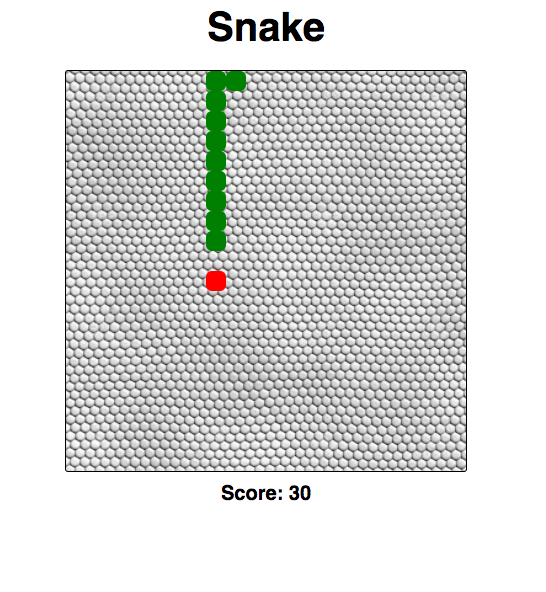jCody
[Snake Demo][link] [link]: http://www.codyjhahn.com/jCody
Background
jCody is a lightweight JavaScript library that facilitates DOM manipulation. Inspired by jQuery, jCody simplifies HTML document traversing, event handling, and AJAX requests in JavaScript.
Guidelines
Installation
To use jCody, start by downloading ./jCody/lib and include it in your project directory. Then, include the following script tag in the head section of your HTML document:
<script src="./jCody/lib/main.js" charset="utf-8"></script>You can also include the following code snippet at the top of every file that uses jCody.
const $c = require('./../jCody/lib/main.js');Sample Usage
With jCody, you can perform some basic DOM manipulation functions:
You can select specific HTML elements or selectors...
$c('ul')
// select all ul elements
$c('.hello')
// select 'hello' classYou can alter the innerHTML of selected elements...
$c('li').html('cool')
// select li elements and change innerHTML to 'cool'You can implement event handlers...
$c('.button').on('click', () => {
console.log('Clicking the button class');
})
// clicking the button class will render 'Clicking the button class' to the consoleYou can perform an AJAX request...
$c.ajax({
method: "GET",
url: "http://api.openweathermap.org/data/2.5/weather?q=London,uk&appid=bcb83c4b54aee8418983c2aff3073b3b",
success(data) {
console.log("We have your weather!")
console.log(data);
},
error() {
console.error("An error occurred.");
}
})
// will fetch weather informationDOMNodeCollection.prototype Methods
html
- Takes a string as an optional argument
- Given no argument, it returns the
innerHTMLof the first node of the collection - Given a string as an argument, the string is set as the
innerHTMLof each node in the collection
empty
- Clears all nodes in the node collection
append
- Takes a a string, an HTML element, or a jCody wrapped node collection
- Appends the
outerHTMLof the given argument to theinnerHTMLof each element in the node collection
attr
- Takes an attribute parameter along with an optional value parameter (attribute, value)
- Given just an attribute parameter, it returns the first element in the node collection that matches the attribute
- Given both an attribute and value parameter, it sets the matched attribute to the value parameter for each node in the collection
addClass
- Takes multiple classes as arguments and adds each to the class list of each node in the node collection
removeClass
- Takes multiple classes as arguments and removes each from the class list of each node in the node collection
children
- Returns collection of all children of each node
parent
- Returns collection of all parent nodes
find
- Takes a selector as an argument and returns all descendants of each node in the set of matched nodes.
remove
- Removes all instances of each node from the DOM
on
- Takes an event and callback as arguments and adds an eventListener for each element in the collection
- Activates callback action when triggered
off
- Takes an event as an argument and removes all eventListeners for each element in the collection
eq
- Takes an index as an argument and selects the element that corresponds to the index in a collection
